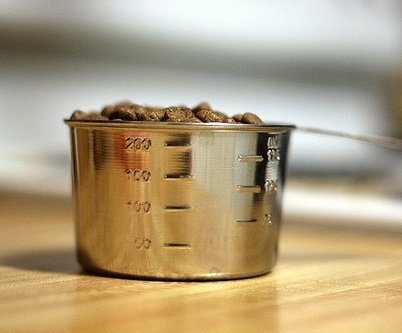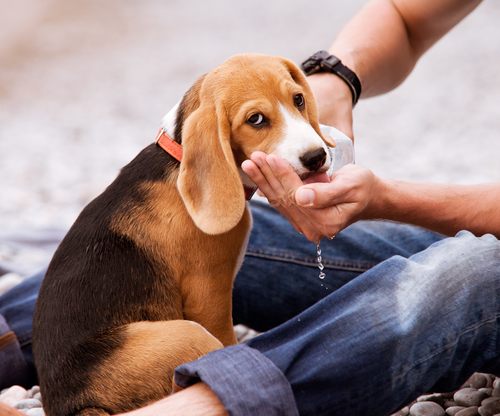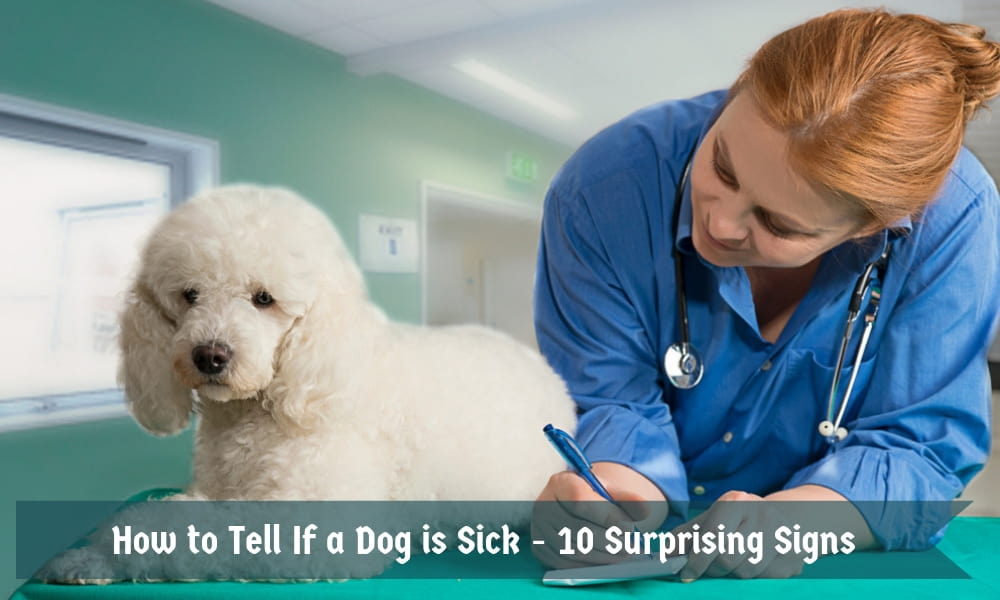
When it comes to your pup, you probably know them like the back of your hand – what their sleep schedule is, if they’re grumpy in the morning, if they’re a picky eater, etc. But what if there’s a sudden change in their personality, or something seems a little “off” all of a sudden? Is this just a fluke, or is there something wrong with your dog? Most importantly, should you be taking them to the vet?
In this article, we’re going to look at 10 surprising signs that your dog is actually sick, and requires a trip to the vet.
Contents
They Seem “Snappy”
Some dogs are naturally on the grumpier side, and this certainly does not always indicate a sick or unwell dog, but it certainly can in some instances. An action like giving a hug or a cuddle to a dog that is not normally snappy or grumpy, but all of a sudden brings on this type of behavior, can be a telltale sign that something is definitely wrong. You must not immediately treat this as a sign of bad behavior, but rather something to take seriously in relation to their health, especially if it is something that’s completely out of character for them.
If your dog is growling or snapping at you when you try to touch them, especially in a particular area, this can most definitely mean pain or discomfort in said area. For example, if your dog has an ear infection, they may snap or growl when you go to touch their head.
While being growled at can be frightening regardless of the reason, our pups have no other way to let us know that something hurts, and that you shouldn’t touch there. If this out of character behavior continues or you start to connect it to discomfort, make an appointment with your vet as soon as possible.
Coughing
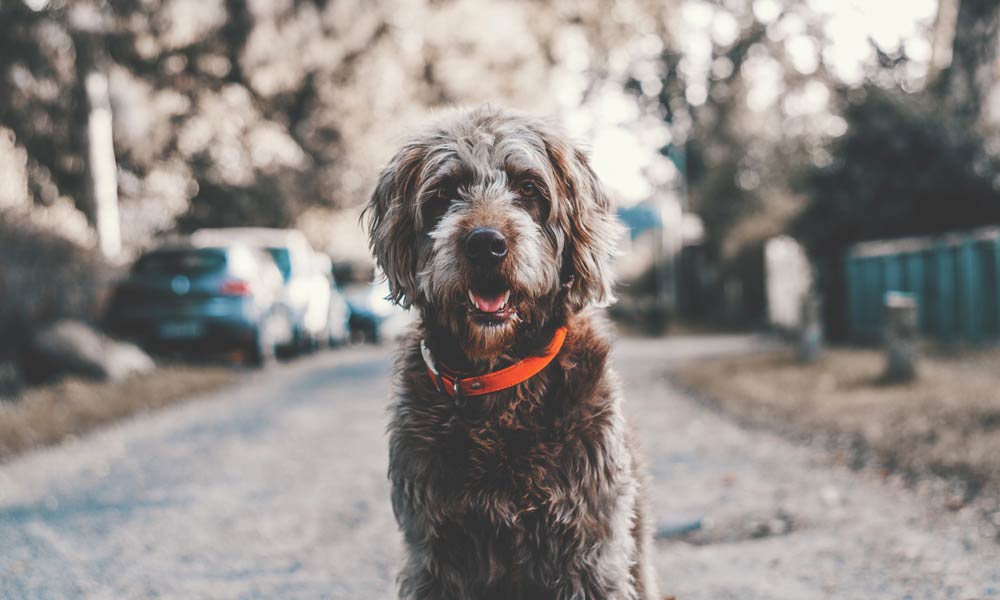
It is not uncommon to hear our dog let out the occasional cough – they may have eaten their food to fast, picked a little something up outdoors or inside that they shouldn’t have, or inhaled some dust. However, if your dog is doing this often, it can definitely be a sign that something is seriously wrong. It is often a sign of a heart-related issue, which is why this type of coughing can be especially common in older dogs.
Other potential reasons for your pup’s coughing may be:
- Kennel cough
- Fungal infections
- Heartworms
- Distemper
- Heart disease
- Congestive heart failure
- Lung problems
Coughing should always be taken seriously, especially in older dogs. If you notice that your dog is coughing or hacking consistently, take them to the vet immediately.
Diarrhea
This may not be a “surprising” sign that your dog is sick, but diarrhea is far too often dismissed. There are plenty of valid reasons for your dog having an upset stomach for a day or two, including a change in food, or if they ate something that they shouldn’t have. In this case, giving them a bland diet of brown rice and chicken for a couple days should absolutely do the trick in terms of getting them back to normal. Dogs have also been known to have diarrhea when they’re excited or nervous.
However, there are many cases in which diarrhea is not normal, and in any case, your pup should be taken to the vet if it’s happening regularly. Some troubling reasons why your dog may be consistently having an upset stomach include:
- Dietary allergies or intolerances
- Parasites (Hookworms, roundworms, etc.)
- Inflammatory bowel disease
- Pancreatic disease
- Bacterial infections
- Some types of cancer
Obviously, many of these are worst-case scenario, but you can never be too careful when it comes to your dog’s health. Call your vet if these symptoms persist for more than a couple days.
They’re Not Eating
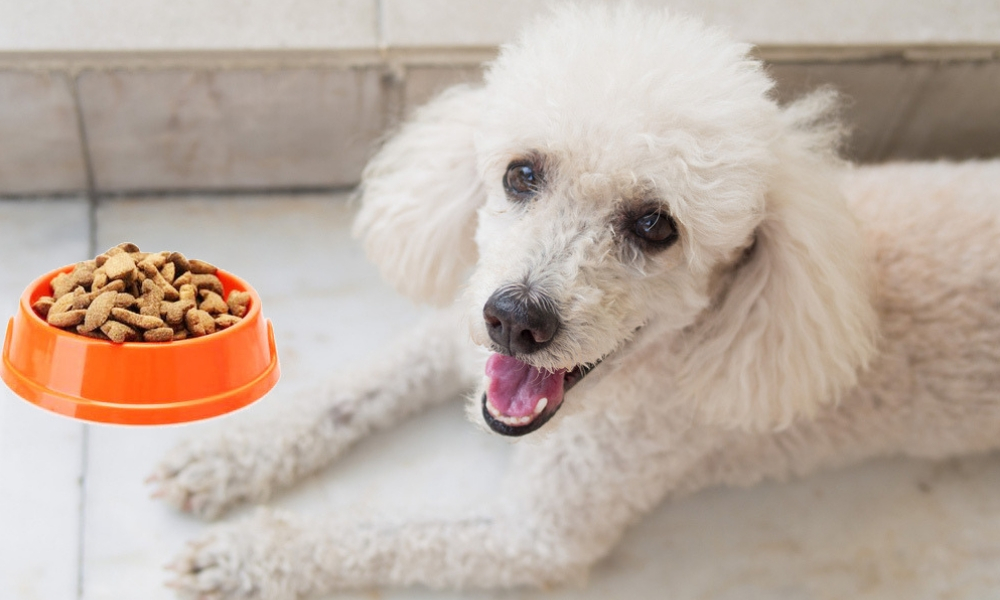
Whether your dog is a picky eater or not, a pet that is not eating or eating very little is not a good sign. There are other reasons a dog might not be eating. For example, they may not be enjoying a recent change in food, or there has been a change in their environment (moving, boarding your canine while you go on vacation, etc.)
However, if your doghas a consistent loss of appetite, there’s a good chance that there is something wrong. After all, most dogs would plan their day completely around their food if they had a choice. Medical reasons why your dog may not be eating include:
- Illness – Not eating can be related to a wide variety of illness, including liver issues, kidney failure, pain, systematic infections and cancer.
- Vaccinations –It is not uncommon for vaccinations to deter your dog’s appetite for a day or so after receiving them.
- Dental issues/disease – There’s a definite chance that your dog’s teeth or gums are bothering them. Check for a loose or broken tooth, or any kind of swelling in the gums.
They’re Not Drinking Water
There are certainly valid reasons why your dog may be drinking less water than they did previously. The weather may have gotten cooler, which is especially true if they’re getting less exercise as a result. You also might have switched over their food from kibble to homemade or wet food, as dry kibble can make dogs significantly thirstier.
However, if none of these instances have occurred or you’ve noticed that your dog is not drinking any water at all, there is definitely a cause for concern. Even if there is nothing medically wrong with your dog, becoming dehydrated can quickly become dangerous. It’s not uncommon for your pet to refuse to drink any water at all if they’re in an unfamiliar place, much like refusing to eat food in the same scenario. Age may also be a factor, as it may take too much effort to get up and have a drink, or their thirst is starting to diminish with their appetite. Stress in general can also definitely play a part, as well as bad experiences associated with drinking water that may have come from a past abusive situation.
However, there are certainly medical reasons why your dog might not be drinking water, including:
- Diabetes
- Kidney disease
- Bladder/urinary tract infection
- Injury to the mouth or teeth
Not drinking enough or any water at all is a serious cause for concern, whether or not there’s a medical reason for it. There are certainly things that you can try before you call your vet, including mixing your dog’s wet food with water, exchanging the water bowl for another (your dog may not like the noise of the current water bowl if it’s made of metal), changing positions of the bowl, and making sure the water is clean. For more information on how much water a puppy should drink in a day, you can find our article here.
They’re Drinking Too Much Water
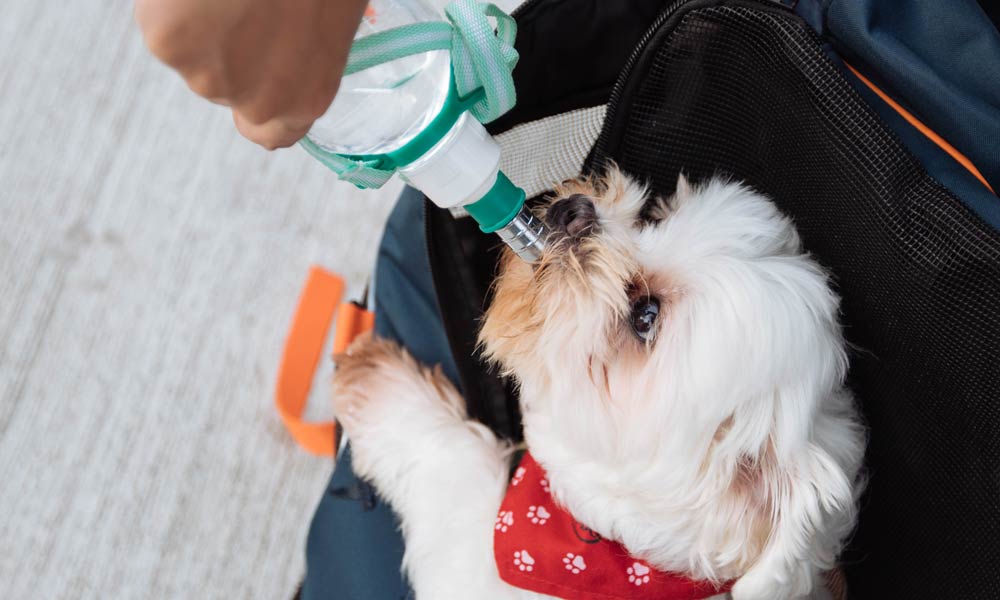
Yes, your dog can certainly be drinking too much water, and this excessive drinking is referred to as polydipsia. It is often a sign of an underlying disease, and should be taken seriously. You’ll know from your own experiences with your dog how much is normal for them to drink, even if that varies according to the temperature outside or how much exercise they’re getting.
Your dog may also seem like they can’t drink enough water when they go to take some, and are gulping excessively. It’s possible that part of the reason they’re drinking so much water is because they’re losing excess amounts of water, and aren’t able to control their body’s water loss, regardless of the temperature. There may also be excess fluid loss in their urine due to how much they are drinking.
Some possible medical reasons for excessive water drinking or polydipsia include:
- Diabetes
- Cushing’s disease
- Kidney failure
- Side effects from medication
- High blood calcium
- Uterine infection
They Won’t Get Up

No, it’s not likely that your dog has just become lazy out of nowhere. There’s a good chance that if lying around and refusing to get up is not part of your dog’s normal, everyday behavior, that they may be in pain. They might be showing their pain by hiding it, and refusing to be sociable. They may just seem excessively sleepy, but odds are that their lethargy is a sign that they are not feeling well.
While this can simplybe a sign of anxiety in your pet, it could be any number of medical conditions. If your pup seems sleepy, lethargic and/or is refusing to get up or sleeping for unusually long periods of time, thenseeking veterinary care is recommended. (See our article here for more details on the possible illnesses behind a lethargic puppy).
Warm ears
It’s likely that you haven’t even thought of feeling your dog’s ears, but did you know that warm ears on your dog could indicate a fever? This is the equivalent to feeling a human’s forehead to see if they have a fever.
A normal temperature for a dog is between 99.5°F and 102.5°F, so anything over 103°F is considered a fever in a dog. The cause of this fever can include:
- Organ infections
- Infected cuts
- Urinary tract infections
- Bacterial or viral diseases
- Infected teeth
- Accidently ingesting toxic materials
There are plenty of other indicators that your dog may have a fever, including a warm, dry nose, shivering and red eyes. Consult a veterinarian immediately if you feel that your dog may have a fever.
Runny eyes
While runny eyes may not be a sign of a serious condition, it can most definitely be a sign of allergies, which can be incredibly aggravating to your dog. It is as common for your dog to develop allergies as it is for us. These may include allergies to food, dust, environmental factors and household cleaners. Other symptoms of allergies can be scabby/itchy skin, diarrhea, and excessive licking or scratching.
On the more serious side, runny or discharging eyes can be a symptom of more serious eye related concerns, including glaucoma, conjunctivitis and dry eye.
They Seem “A Little Off”.

You know your dog better than anyone – if they seem “a little off”, that could very well mean that there’s something going on. It’s important to note that any kind of change in behavior could be a result of a medical condition, or it could be the result of stress. Either way, if your dog seems off and it’s been more than a couple days, you’re going to want to get down to the route of the problem.
Consulting your veterinarian is a great idea if you can’t pinpoint what is going on. It may be that they’re sleeping more than usual, that they’re being antisocial, or that their appetite is just not quite as it should be. Either way, you know your pup best – if you think there is something wrong, there very well might be, and it’s always best to err on the side of caution.
Conclusion
When it comes to your pup, it’s important that you pay close attention to their health and changes in their behavior. Our dogs count on us to take care of them, and they can’t speak up to tell us when something is wrong.
It is very important to keep on top of your dog’s health by taking them for regular checkups, and by feeding them a balanced and nutritious diet. If you witness any of our 10 surprising signs that your dog may be sick and they don’t go away in a couple of days, consult with a veterinarian.While it can be scary to admit to yourself that your pup may have a health condition, it is always best to catch it before it gets any worse. There could be medications that could improve the situation, or it could be cured altogether. Tackling symptoms head on is always the answer, so that your pup can live the active, healthy lifestyle that they deserve.
I grew up in a household that was filled with animals. I believe that my fate as a dog-loving person was sealed in early childhood since my parents owned several dogs of varying sizes and breeds. There was no choice but to take care of and learn about dog habits and the best animal care practices — otherwise, I’d be clueless about how to go about the creatures I was surrounded by day and night.
As a life-long puppy lover, I know a thing or two about dogs and how to go about caring for them in the best way possible. Although I’m not a professionally trained dog behaviorist, trainer, or veterinarian, all of my knowledge and experience with canines comes from a place of love and a deep-rooted passion for dogs and animals in general.
Seeing as dogs kept me company throughout every stage of my life, I decided to follow a different path in my academic life and obtained a Bachelor’s and Master’s degrees in Marketing Management and Digital Advertising, which ultimately allowed me to combine my professional training and personal experience by creating the ultimate dog lover’s resource website! Along with my husband, Dave, I run MySweetPuppy for like-minded dog lovers who want to have a single, clear, and reliable information source about anything and everything related to dogs and their well-being.

